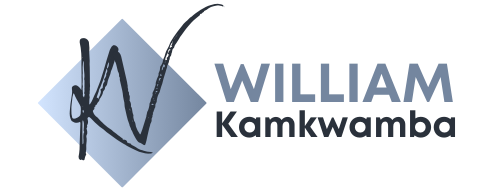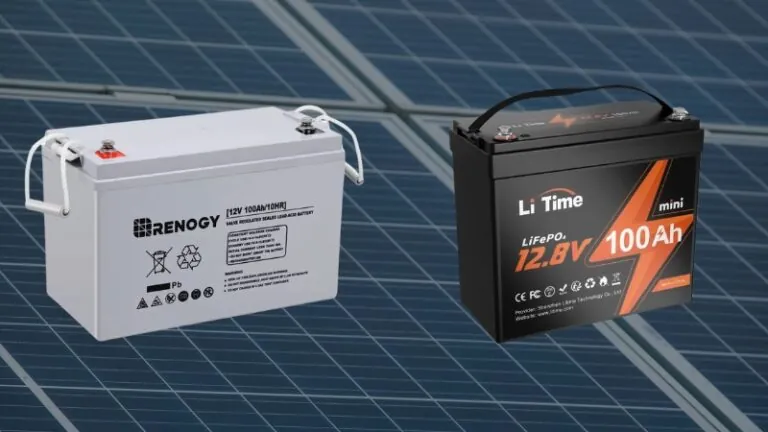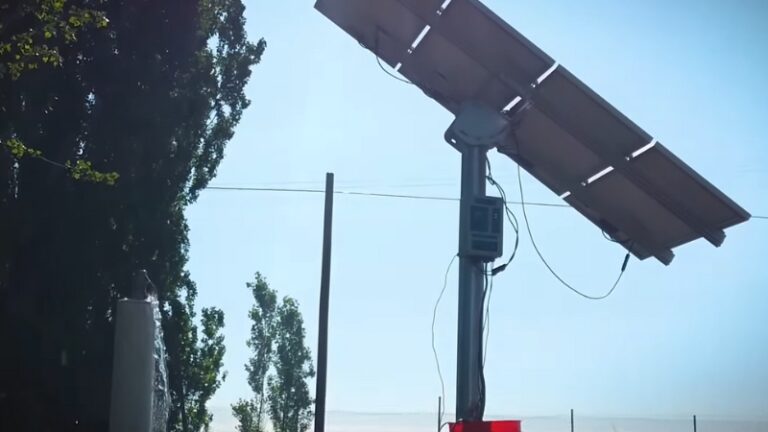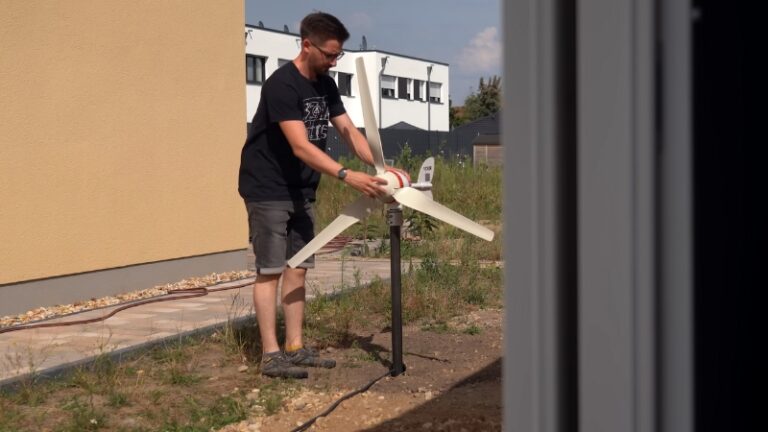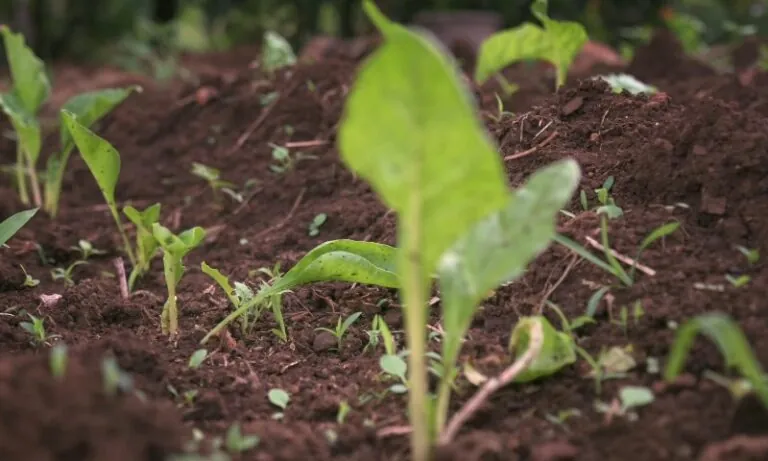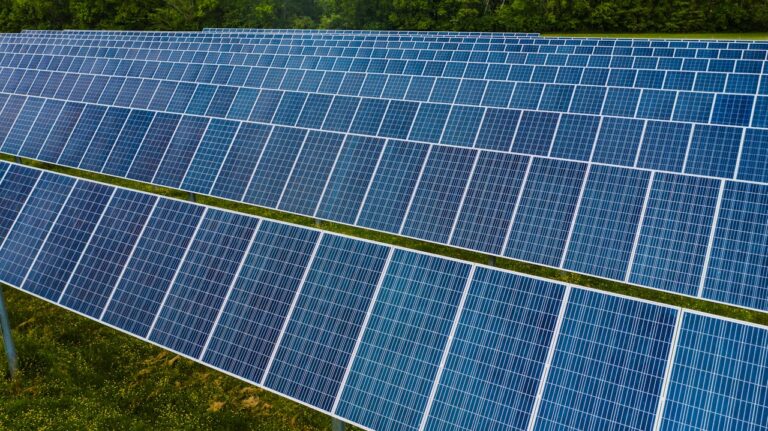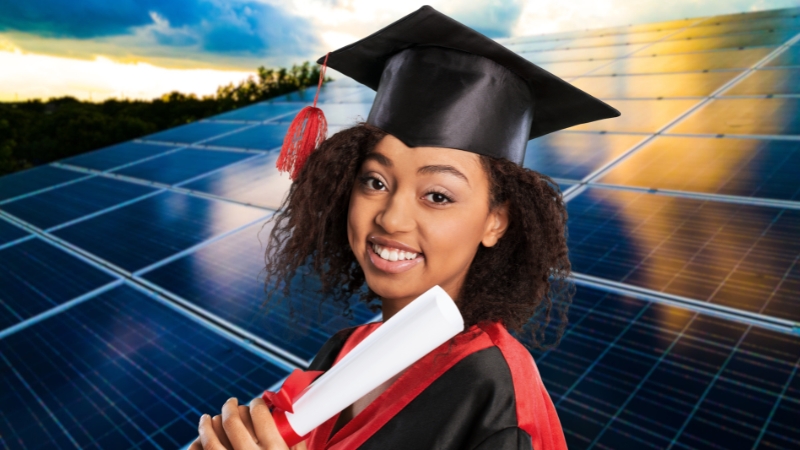African students face numerous challenges when pursuing careers in renewable energy. Scholarships for African students in renewable energy help reduce these challenges.
Financial support gives access to resources, expert mentorship, and hands-on training. More scholarship programs are open for 2025 and offer full support across study levels.
Opportunities cover solar, wind, hydropower, bioenergy, and other sustainable energy focus areas.
Why Renewable Energy Matters for Africa
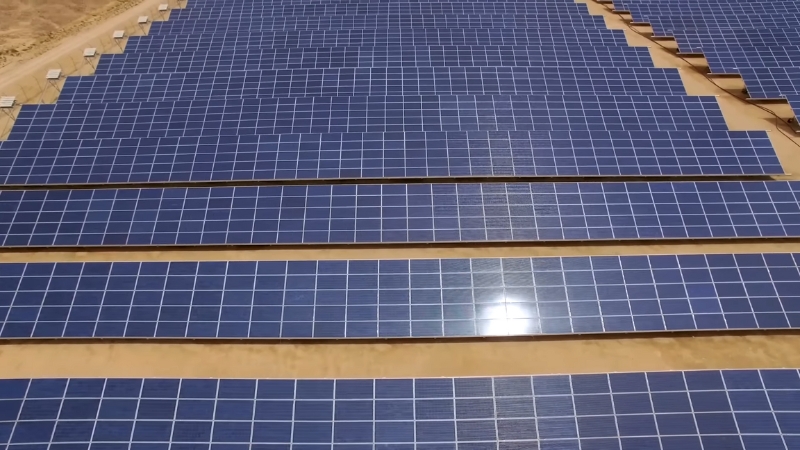
Africa holds great potential for renewable energy growth. Solar energy is abundant across most regions.
Hydropower and wind projects can provide stable electricity to both urban areas and remote villages. The continent still lacks a sufficient number of trained professionals in this field.
Scholarships provide access to the training required to build this future workforce.
Renewable energy enhances electricity access, fosters economic development, and promotes clean and safe environments. It also reduces dependency on imported fuel.
Trained professionals are needed to lead these changes. Education funding helps develop local talent in critical areas.
How Scholarships Help Energy Students
Energy-related scholarships in Africa help reduce the cost of tuition and living expenses. Many offer internships, mentoring, and global learning opportunities.
Students build practical skills through lab work, field placements, or international exchanges that enhance their career prospects.
Support often includes tuition coverage, monthly stipends, research grants, and career development resources. Undergraduate and postgraduate students benefit, depending on the program’s structure.
Top 7 Renewable Energy Scholarships for Africans
Several renewable energy scholarships offer funding and skill-building opportunities for African students. Each program supports education and career growth in the energy sector.
Some focus on leadership, others develop technical or research skills. Many programs offer entry points into internships, energy companies, or policy-focused work.
Students can select programs that align with their personal goals and field of study.
1. DAAD In-Country/In-Region Scholarship Program
This program funds postgraduate students at African universities. It supports studies in renewable energy, engineering, and sustainability.
Students receive tuition support, living stipends, and travel allowances. Deadlines vary by country. The program aims to strengthen regional cooperation and academic exchange.
It connects students with top researchers and offers access to advanced labs and equipment. Some awardees gain invitations to international conferences and partner institutions.
2. AIMS Master Scholarship in Mathematical Sciences
AIMS trains students in applied mathematics and energy modeling. It operates in South Africa, Rwanda, Senegal, Cameroon, and Ghana. The scholarship includes tuition, accommodation, meals, and a stipend. It runs for one year.
Students work with top researchers and industry professionals. Courses are intensive and focus on real-world applications. Graduates often continue into advanced energy roles or doctoral studies.
3. Mandela Rhodes Foundation Scholarships
View this post on Instagram
The foundation funds African citizens under 30 studying in South Africa. It accepts various academic fields, including renewable energy. Scholars receive tuition, living support, and leadership training. Applications open annually in April.
The program builds a strong focus on ethics, leadership, and community service. Selected students join a network of changemakers across the continent. It prepares graduates to influence public policy, lead energy projects, or grow social enterprises.
4. MasterCard Foundation Scholars Program
This program supports African youth through selected universities across Africa and globally. It focuses on leadership and impact-driven education. Students receive full funding, mentoring, and support for entrepreneurship.
The foundation works with institutions such as the University of Cape Town, Kwame Nkrumah University of Science and Technology, and Makerere University.
The program supports those from disadvantaged backgrounds. Scholars frequently undertake projects that promote innovation, sustainability, and community empowerment.
5. Energy Talent Company Fellowship
Are you ready to embark on a journey of discovery in the solar energy field? Our program offers you exclusive access to industry experts, comprehensive hands-on training, and a multitude of opportunities to carve your niche in this exciting sector. pic.twitter.com/QzwQkbiOls
— Energy Talent Company (@energytalentco) February 28, 2024
Graduates in engineering and related fields are eligible to apply for this fellowship in Nigeria. It provides solar energy training, job placement, and career support. The program prepares participants for work in technical roles.
Fellows receive classroom instruction and field-based experience. The company partners with top solar firms across Nigeria. It helps bridge the gap between academic training and employment in the energy sector.
6. One Young World Summit – Lead2030 Challenge for SDG 7
Young innovators focused on clean energy are invited to apply to this global initiative. It includes grant funding, mentorship, and an international platform. It supports African participants working on energy access projects.
The challenge targets Sustainable Development Goal 7. Winners receive up to $50,000 in funding. Past recipients have launched scalable projects in rural electrification and energy education.
7. African Union Kwame Nkrumah Scientific Awards
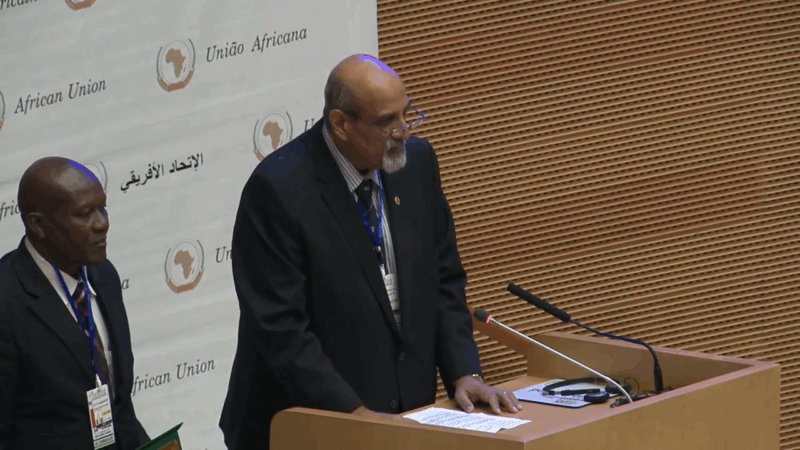
These awards recognize scientists in various fields, including renewable energy. Winners receive cash prizes, recognition, and research exposure. The goal is to promote innovation and scientific progress in Africa.
The awards are given at national, regional, and continental levels. Candidates must show outstanding scientific achievement. Winners often become role models for future African researchers.
Scholarships Open for 2025
Scholarship Name
Application Period
Study Level
Country Focus
DAAD In-Region Program
Varies
Postgraduate
Sub-Saharan Africa
AIMS Master Scholarship
May to August
Master
All African states
Mandela Rhodes Scholarship
January to April
Postgraduate
Pan-African
MasterCard Foundation Scholars
Varies
All levels
Country-specific
Energy Talent Company
Open year-round
Graduate only
Nigeria
Lead2030 SDG7 Challenge
September
Any level
Open to Africans
AU Kwame Nkrumah Awards
December
Researchers
Continental
What Students Should Prepare Before Applying
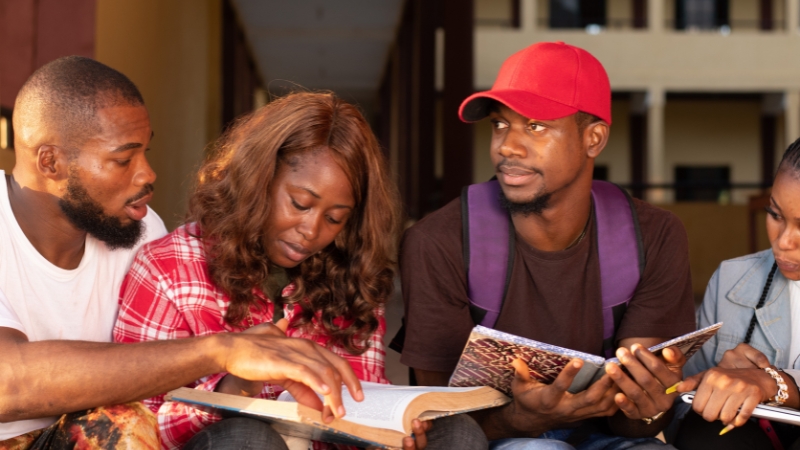
Strong applications include more than academic records. Each scholarship looks for different qualities. Some seek technical skills, others prioritize leadership or community action.
Applicants must show commitment to renewable energy and public service.
Documents often required include transcripts, personal statements, letters of recommendation, proof of nationality, and research proposals for postgraduate studies. Applicants should also prepare a detailed resume that highlights energy-related experience.
Participation in conferences, local energy projects, or student associations can make a strong impression. Strong candidates demonstrate clear goals, local involvement, and a passion for making a positive impact in the energy sector.
Scholarship Name
Covers Tuition
Living Stipend
Offers Mentoring
Focus Field Examples
DAAD In-Region Program
Yes
Yes
Yes
Engineering, Sustainability
AIMS Master Program
Yes
Yes
Yes
Applied Mathematics, Energy
Mandela Rhodes Scholarship
Yes
Yes
Yes
Leadership, Public Policy
MasterCard Foundation Scholars
Yes
Yes
Yes
Energy, Entrepreneurship
Energy Talent Fellowship
No
Yes
Yes
Solar Energy, Tech Training
Lead2030 SDG7 Challenge
No
No
Yes
Clean Energy Projects
AU Kwame Nkrumah Awards
No
No
No
Scientific Research
Tips to Win Energy Scholarships
Applicants should show genuine interest in renewable energy. Joining local clean energy groups or leading a community project can be beneficial.
Letters of recommendation should be from professionals in the energy field or academics. Relevant coursework, volunteering, or technical training can strengthen an application.
Early applications with complete and tailored documents are more likely to stand out. Meeting all criteria and following directions is key. Tracking deadlines, customizing essays for each program, and presenting a focused career plan improve chances.
Career Paths After Scholarship Programs
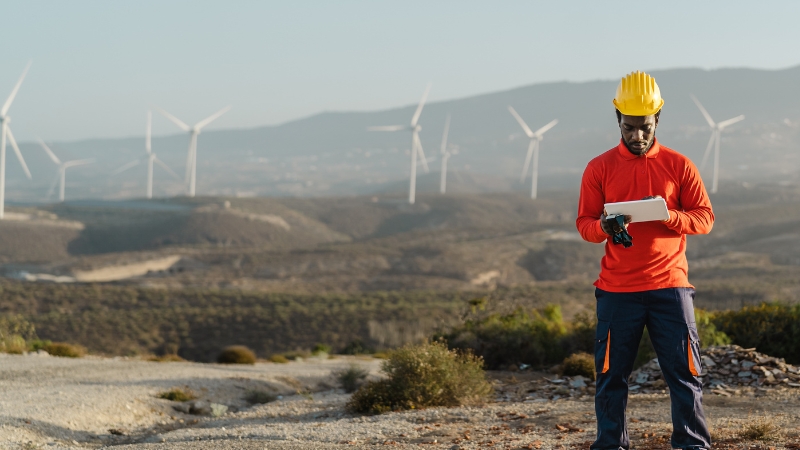
African renewable energy education funding leads to strong career outcomes. Graduates work in public institutions, private energy firms, and non-governmental organizations.
Some start clean energy companies. Others teach or lead research.
Typical roles include solar project manager, energy policy analyst, and electrification planner. Researchers often join think tanks or academic institutions, such as universities.
Countries Supporting African Energy Scholars
Several countries fund renewable energy scholarships for Africans. Germany offers many programs through DAAD. Canada supports youth through the MasterCard Foundation.
South African universities host programs such as the Mandela Rhodes and AIMS.
The United Kingdom funds programs like Chevening with sustainability tracks. The United States and France also support African energy scholars through private foundations.
Support is growing across the continent and globally. Students should explore both local and international options.
Postgraduate Scholarships in Renewable Energy
Postgraduate scholarships in renewable energy prepare students for leadership and research roles in this field. Fields such as engineering, energy economics, and sustainability often require advanced training.
Programs at this level involve lab research, field projects, and thesis work.
DAAD, AIMS, and Mandela Rhodes are top programs at the postgraduate level. Others include African Development Bank initiatives and UN-backed fellowships.
Students gain in-depth knowledge, specialized skills, and professional networks necessary for high-impact roles.
Common Fields of Study in Renewable Energy

Scholarships support studies in many areas. Renewable energy engineering is common. Environmental science, energy economics, and sustainable development are also covered.
Physics and chemistry play a crucial role in energy innovation.
Some programs emphasize policy and management. Others support technical or scientific fields. Students should select programs that align with their academic background and future career goals.
Challenges in Accessing Scholarships
African students face barriers when applying. Internet access, lack of information, and few mentors limit opportunities. Competition is high for top programs.
Students can visit university offices for support. Reaching out to alums or joining energy-focused forums can provide valuable advice. Creating a yearly application calendar and improving time management helps reduce stress and avoid missed deadlines.
Key Factors Scholarship Committees Look For
Selection panels focus on more than academic excellence. They value applicants who demonstrate a commitment to energy access and community development.
Personal goals must align with the scholarship’s mission. Involvement in projects that improve lives or solve real energy challenges builds strong cases.
Applicants who present specific, local goals stand out. Strong communication skills and the ability to clearly describe outcomes are essential. Past leadership in energy clubs, school campaigns, or awareness drives can add value.
How Renewable Energy Education Transforms Communities

Graduates return to their communities with knowledge and practical skills, ready to make a positive impact. They develop clean energy solutions that reduce power shortages.
Some design solar grids for schools or health centers. Others create jobs through small solar businesses.
Education in renewable energy builds long-term community resilience. Trained individuals can also influence energy policies in their regions. Increased access to energy leads to better education, improved healthcare, and local economic growth.
Statistics That Highlight the Urgency
Only 56 percent of people in Africa have reliable access to electricity. Sub-Saharan Africa has the lowest access, with just forty-eight percent.
Fewer than four percent of the African workforce is employed in the renewable energy sector. Rural areas suffer the most due to a lack of infrastructure and skilled labor. Increased education funding can change this.
Scholarships offer a direct path to training local experts who can help solve energy shortages. The International Renewable Energy Agency reported that Africa needs millions of new energy workers by 2030 to meet its energy goals.
Final Thoughts
@boagojackson 🎓✨ Fully Funded DAAD Scholarships for Master’s & PhD in Sub-Saharan Africa! 🌍📚 Are you looking to advance your studies in Malawi, Namibia, or South Africa? The DAAD In-Country/In-Region Scholarship Programme is offering funding for Master’s and PhD studies in various disciplines, including Molecular Biology, Computer Science, Urban Studies, and more! 💰 Benefits include: Monthly stipends, tuition fees, research allowances & international research opportunities! 📅 Web seminar: March 13, 2025 – Get all the details! ⏳ Application deadline: April 9, 2025 Apply now and take your education to the next level! 🚀🔗 daad.de/go/en/stipa10000486 #DAADScholarships #StudyInAfrica #FullyFunded #PostgraduateOpportunities #fyp #botswanatiktok #botswana ♬ original sound – BoJackson
Scholarships for African students in renewable energy create new opportunities for the future. Each program supports careers that strengthen communities and solve energy challenges.
Applicants who focus, conduct thorough research, and express clear goals have a better chance of success.
Every year brings more scholarships and broader outreach. Consistent preparation, strong documentation, and energy-focused activities help students gain recognition.
